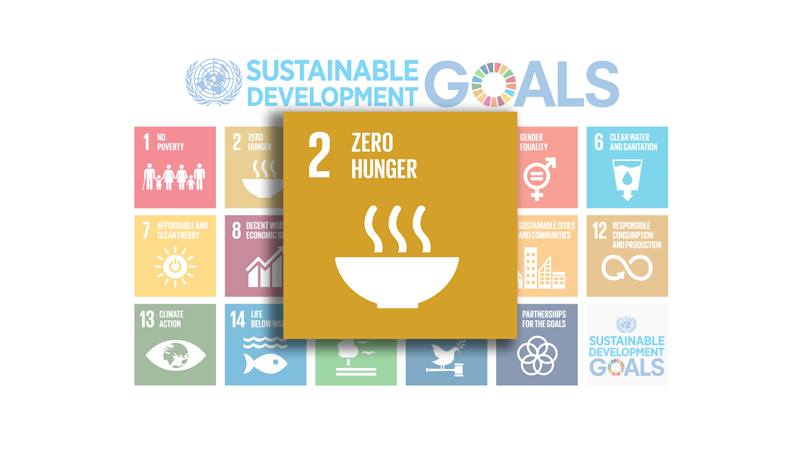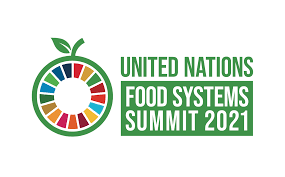ECOSOC at 80: Renewing Multilateralism in an Age of Global Uncertainty
On 23 January, the United Nations Economic and Social Council (ECOSOC) convened a commemorative session…
Food – something we all think about every day. Yet, how far do our  thoughts about food go? Do we think about how it is produced and where it comes from? Do we think about the cost of our food to the environment? The cost of production? Do we ever wonder whether there is an endless supply of the foods we love?
thoughts about food go? Do we think about how it is produced and where it comes from? Do we think about the cost of our food to the environment? The cost of production? Do we ever wonder whether there is an endless supply of the foods we love?
These are not thoughts that occur to the everyday person as they pursue the most basic of necessities – food. Yet, for the world’s policymakers, farmers, investors, and all those involved in the food system, these are issues to be dealt with daily. How do we continue to feed the world while minimizing our impact on the environment and ensuring we can sustain food production? How do we ensure everyone, everywhere has access to food, and, to a healthy, nutritious diet?
With the adoption of the Sustainable Development Goals, the world agreed to achieve 17 Goals by 2030. Among them, Goal 2 – End hunger, achieve food security and improved nutrition, and promote sustainable development. As the Decade of Action towards the 2030 Agenda drew near, it became clear that the world was not on track to achieve the SDGs. With SDG 2 in particular, while the world produces enough food to feed 10 billion people, figures show that the world is moving further away from that goal with over 800 million people going hungry every day and in 2020, with the impact of the COVID-19 pandemic, that number increased drastically.
achieve 17 Goals by 2030. Among them, Goal 2 – End hunger, achieve food security and improved nutrition, and promote sustainable development. As the Decade of Action towards the 2030 Agenda drew near, it became clear that the world was not on track to achieve the SDGs. With SDG 2 in particular, while the world produces enough food to feed 10 billion people, figures show that the world is moving further away from that goal with over 800 million people going hungry every day and in 2020, with the impact of the COVID-19 pandemic, that number increased drastically.
Recognizing that transforming food systems can create resiliency and demonstrate sustainable development in all dimensions, United Nations Secretary-General Antonio Guterres announced that he would host a Food Systems Summit in 2021 that will lead the way towards the achievement of all the Sustainable Development Goals. To lead the process towards the Food Systems Summit, Dr. Agnes Kalibata of Rwanda was appointed as the Secretary General’s Special Envoy for the Summit.
The 2021 Food Systems Summit will have 5 objectives:
1. Ensuring Access to Safe and Nutritious Food for All
2. Shifting to Sustainable Consumption Patterns
3. Boosting Nature-Positive Production at Sufficient Scales
4. Advancing Equitable Livelihoods and Value Distribution
5. Building Resilience to Vulnerabilities, Shocks and Stresses
According to the Food Systems Summit website, it is anticipated that “the Summit  will awaken the world to the fact that we all must work together to transform the way the world produces, consumes, and thinks about food. It is a summit for everyone everywhere – a people’s summit. It is also a solutions summit that will require everyone to take action to transform the world’s food systems”.
will awaken the world to the fact that we all must work together to transform the way the world produces, consumes, and thinks about food. It is a summit for everyone everywhere – a people’s summit. It is also a solutions summit that will require everyone to take action to transform the world’s food systems”.
It is envisioned that the Summit will result in at least 4 outcomes:
1. Generate significant action and measurable progress towards the 2030 Agenda for Sustainable Development.
2. Raise awareness and elevate public discussion about how reforming our food systems can help us all to achieve the SDGs by implementing reforms that are good for people and planet.
3. Develop principles to guide governments and other stakeholders looking to leverage their food systems to support the SDGs.
4. Create a system of follow-up and review to ensure that the Summit’s outcomes continue to drive new actions and progress.
The Summit is expected to be held on the margins of the 2021 Session of the United Nations General Assembly in September while a pre-Summit is being planned for Summer in Rome. To guide the work of the Summit, Action Tracks have been identified to mirror the Summit’s objectives. As preparations continue for these events, a host of activities are unfolding through which the public and a host of stakeholders can contribute to the discussions. A Community page has been created and Food Systems Dialogues are taking place globally to foster engagement with all stakeholders. Dialogues can be organized as Global Summit Dialogues to align with global events or by Member States or interested individuals. More information on the Dialogues can be found here.
Food Systems are one of – if not the most – important systems to our collective and individual lives. It impacts our health and economies. Food is our culture. Food is family and community. Food is who we are. At a time when COVID-19 has illustrated in the cruelest of ways that our food systems are not as resilient as we thought and are certainly not sustainable, the Food Systems Summit offers a critical and much needed opportunity for us to collectively fix our food. Fix our food so that we can stop food waste. Fix our food to feed the millions that go hungry every day. Fix our food to ensure we all get access to and can afford a healthy diet. Fix our food so that generations to come can enjoy the foods we love today. Fix our food so that food production does not have a detrimental impact on the environment. Join the conversation and let together us fix our food.